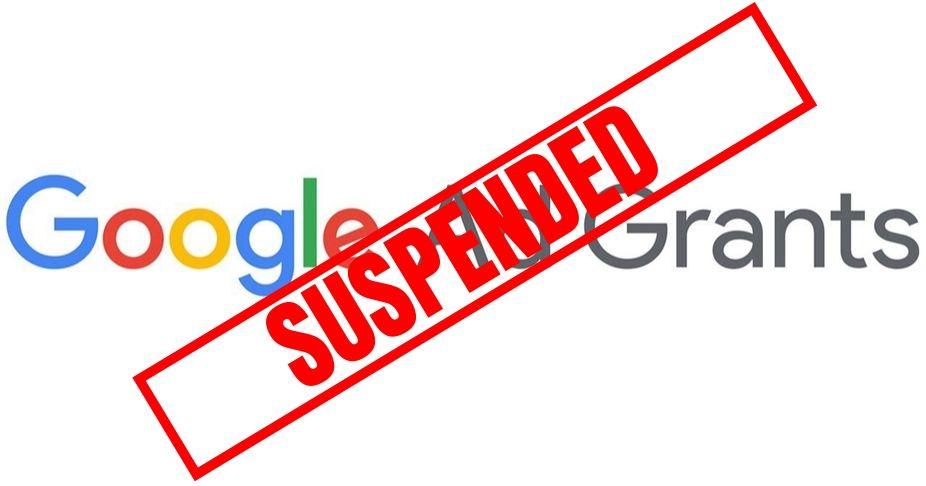7 Common PPC Mistakes...Which are Wasting Your Budget
WHAT COURSE ARE YOU LOOKING FOR?
-

7 Common PPC Mistakes...Which are Wasting Your Budget
5 Mar 2020Many companies waste large parts of their digital advertising budget by not fully understanding how Google Ads and Microsoft Ads work.
We meet some of these companies on our Google Ads and Google Analytics courses (when you know what to look for the waste is obvious).Why do so many organisation waste so much money? It is in part because of the way Google and Microsoft (Bing) make you set up your campaigns.
So, what are the 7 most common mistakes made when setting up search ad campaigns:
1. Not doing your keyword research before you start setting up a campaign
Doing your keyword research and understanding the terms that are relevant to your product/service is a vital first step before your campaign is set up and running.
Doing so can help you save wasted clicks and £££s.
2. Targeting keywords that are too broad or have doubtful intent
Again, as above, doing your keyword research is vital, understanding your product or service is vital and understanding your audience is vital.
If you’re selling laptop bags, you don’t want to be targeting the keyword bags as the search could be looking for handbags, plastic bags, backpacks etc.
Refining your keywords into tight groups based on ‘intent’ can save you those wasted clicks.
3. Overusing Automated bidding strategies
Google loves automation. Their ‘strategists’ evangelise about the virtues of using automated bidding strategies in Google Ads.
However, our research and experience in running campaigns have led us to believe that most automated bidding strategies lead to a higher cost and cost per conversion.
We have found a few exceptions. For example, automated bidding tends to be better than manual bidding when you don’t know what you are doing! or when the conversion data is large and reliable. If you do know what you are doing you will almost certainly be better off using Manual bidding.
4. Starting Search campaigns using Broad Match Types
There are three match types available to you, Broad match is the dangerous one, as its purpose is to reach the biggest audience possible.
Using broad match could mean your ads appear for search terms which include any of the keywords within the keyphrase or it could appear for searches which the search engines class as synonyms of the keyphrase you put.
On a campaign we set up for Leadership Courses we selected to target keywords such as ‘Leadership Courses Manchester, ‘Management Courses Manchester’, etc using Broad Match.
What we discovered was that Google was showing our ads for all sorts of keywords, including ‘Cub Scout Leader’!
Whilst broad match can be useful be wary of the terms you use and avoid using broad match initially until you have a better understanding of the keywords that work for you.
5. Not being diligent enough about adding Negative keywordsNo matter how thorough you are with you keyword research and selecting the right match types, the likelihood is that you will have some search terms you won’t want your ad to show for and over time you will see users clicking through who have used Search Terms you, again, don’t want your ad to show for.
You can cut down this waste by adding such terms into your Negative keywords to stop your ads showing for them. Over time your campaign will have less and less waste.
Being on top of your Negative keywords is a simple way to cut down on irrelevant wasted clicks and spend.
6. Not having the right conversion and performance data available to allow efficient bidding and optimisation
Do you know if your ads are effective? Or if your landing page is optimised for your target keywords?
If the answer is no then you could be wasting a good chunk of your budget.
It’s all too common. We regularly see ad campaigns with low-Quality Score, no conversion data and no data on how high their ads are appearing.
OK, you may be able to see your Clicks, Impressions and Click-Through Rates, but are the Users clicking on your ad going on to convert? Are your quality scores good? Are you overbidding or underbidding?
Without setting up your reports correctly and having good conversion data you are running blind. You won’t have the data to optimise your campaigns. You won’t know if it’s worth spending all this money on your ads.
7. Not having well thought out PPC strategies
- What is the outcome you want from the ads?
- Do you want to use your PPC campaigns to sell all your products or services or just a select few?
- Where are we likely to have the best conversions?
- How much are we prepared to pay for a sale?
- What is the lifetime value of a new customer?
Search Engine Ad Campaigns, in particular, Google Ads, are a quick and relatively easy way to generate growth.
However, you need to have a clear strategy for your campaigns to ensure you know; what you want to bid for; how broad your targeting is going to be; how much you want to bid; and, how are you going to measure success.
Have you made any of these mistakes? Are your campaigns optimised as well as they could be? Has Google helped you set up campaigns but you still found these to lead to poor results?
Check out our 1 Day Google Ads training course and learn from an expert with over 10 years experience.
Related Articles
-

Top Northern Digital Marketing events 2020
02 Jan 2020Read about the top digital marketing events being held in the North in 2020
Read More -

Has your Google Ads Grants Account Been Suspended?
11 Oct 2019Many charities and not-for-profits have found that their Google Ads account has been suspended. So what should you do?
Read More -

Conversion Rate or User Conversion Rate? Which is the best metric?
09 Aug 2019Not many people really understand conversion rates when looking at their Analytics Reports - so what do they actually measure?
Read More





























